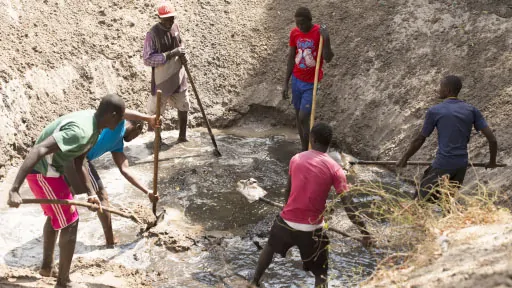Opinion Editorial Archive February, 2018: None to Blame

I was recently in Senegal, West Africa. Although it was not in my original plans, I took advantage of the opportunity to visit a remote island community a few kilometers inland from the Atlantic Ocean. It is a small community of indigenous Karon (Jola) people comprising just a few families. Yet it is one of the most interesting places I have ever visited in Africa. Apart from the recent arrival of solar electricity, it was like stepping back hundreds of years.
Hundreds of years ago the indigenous Mapuche people were very successful. Today they are marginalized and disadvantaged by their respective governments — particularly in Chile where they form around 80% of indigenous people. Some Mapuche have resorted to violence in Chile in recent years as part of their struggle for, among other things, return of their ancestral lands. Inevitably, then, the visit to Chile by Pope Francis (a latter-day champion of indigenous peoples' rights) last month was mired in controversy before he arrived.
The Karon men in this month's photo do not need to fight for their land. That land, unlike Mapuche land, is so impoverished of natural resources that they have effectively been forgotten by their government and exercise de facto self-governance. One consequence of this is that, like many Mapuche in Chile, these Karon have little access to formal education or clean water. Their village does have a well, but the water is so dirty that we would likely die within hours of drinking it. That is why these men were busy digging a new well when I visited. Like all labor on the island, this is an entirely manual task and it had taken weeks of team digging to reach the water table.
Mapuche violence has taken many forms including the firebombing of (Catholic) churches. Just ahead of the Pope's visit last month more churches were attacked. In those cases it is unclear whether Mapuche were responsible and Chilean authorities said they did not know whom to blame. Conversely, one attendee at a Mass given by the Pope condemned such action stating that nor are churches to blame for the situation of the Mapuche.
While the Pope is aware of the atrocities committed by the Catholic Church in Latin America, he is also likely of the opinion that churches are not to blame. The Mapuche were very successful in resisting Spanish colonization and that resistance extended to the missionaries who followed. Even today, although their traditional beliefs have fused somewhat with Catholicism, the Mapuche retain their religious heritage.
The Karon likewise have resisted outside religious influence — in their case from both Christianity and Islam. These men and their kin are Animists. So who is to blame for the current situation of the Karon and Mapuche? I don't accept that there's none to blame. Perhaps we all are for relying on mainstream media to teach us what happens in the world.
If you enjoyed reading this month's opinion editorial, please consider supporting independent, advertising-free journalism by buying us a coffee to help us cover the cost of hosting our web site. Please click on the link or scan the QR code. Thanks!

